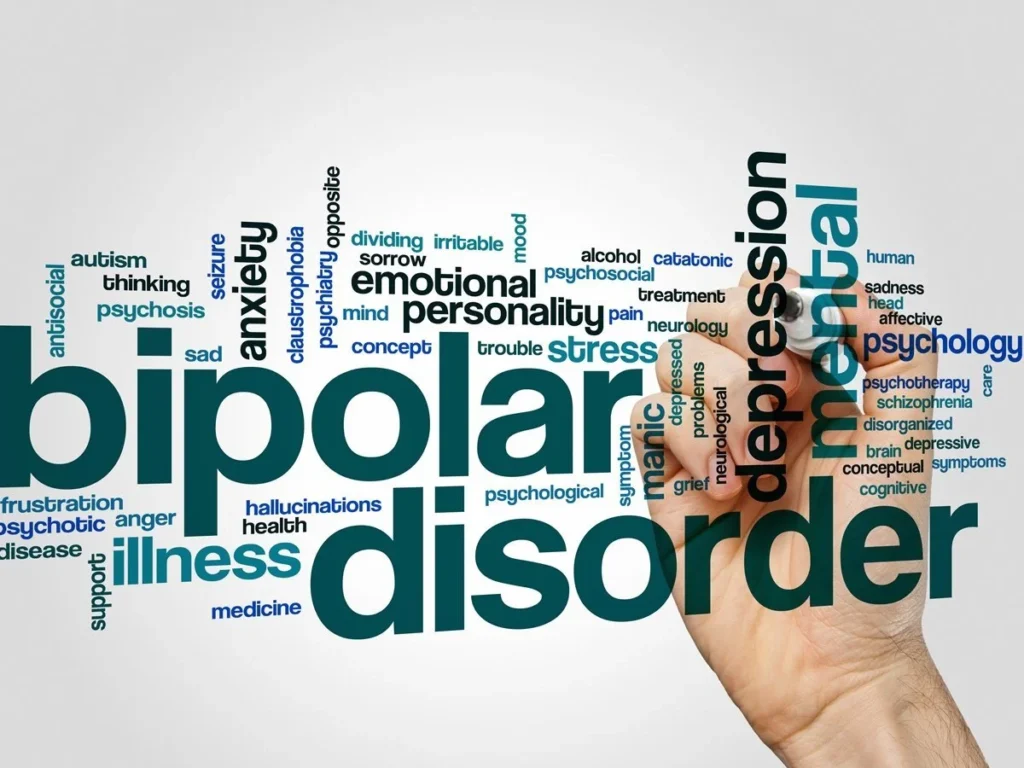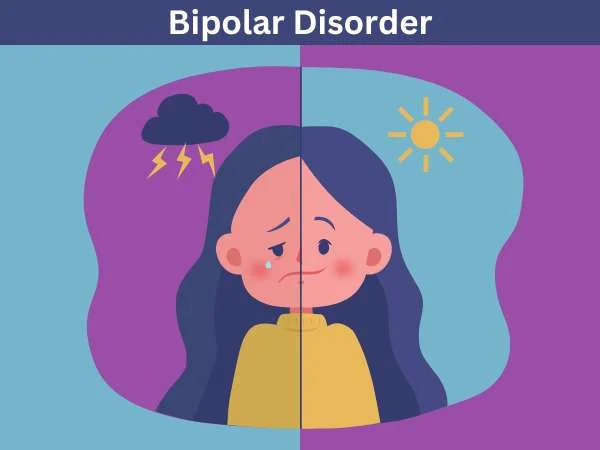This article discusses some possible causes of bipolar disorder, such as genetic, biological, environmental, and psychological causesIt is among the most complex conditions related to mental health. It swings from extreme manic highs to depressive lows.Even though the direct causes are still relatively unknown, research has so far managed to show quite several possible factors in its development. This paper, therefore, will help to explore biological, genetic, and environmental factors attributed to bipolar disorder.
Reasons for Bipolar Disorder
Bipolar disorder is another complex, multifaceted mental condition that comes under the limelight due to its extreme shifts in mood. Moods swing from emotional highs, called mania or hypomania, to lows, called depression. It affects millions of people worldwide and can have a deep impact on a person’s whole life, relations, and general well-being. Although the exact causes of bipolar disorder have not been fully established, it is believed to be caused by many factors.

1. Genetic Factors
Heredity
The role of genes in causing bipolar disorder is one of the most important domains in which researchers are actively working to determine the real cause of this disorder. Many studies have pointed out that bipolar disorder is genetic in origin. The presence of a family history of the disease enhances the predisposition to acquiring the disorder. Twin studies showed that when one identical twin suffered from bipolar disorder, the other identical twin stood a much higher chance of developing the disorder compared to fraternal twins.
Genetic Research and Findings
Researchers have pointed out several candidate genes that may be connected with bipolar disorder, but no single gene has been identified that could independently cause the disorder. Rather, it is likely that susceptibility to developing bipolar disorder is caused by a combination of genetic variations. In the context of other studies, several candidate genes related to neurotransmitter regulation and brain function have been pointed out, which might be implicated in the disorder.
2. Biological Factors
Neurotransmitter Imbalance
Neurotransmitters are chemical messengers within the brain that can aid in the transmission of signals between neurons. Therefore, imbalances of neurotransmitters, such as serotonin, dopamine, and norepinephrine, have been linked to bipolar disorder. Manic episodes might demonstrate overactivity in neurotransmitters, and depressive episodes may relate to reduced activity. As a result, this imbalance of these neurotransmitters breaks mood regulation, giving way to the symptoms of bipolar disorder.
Brain Structure and Function
Brain-imaging studies have revealed changes in brain structure and function in individuals with bipolar disorder. Pathologies were shown in the prefrontal cortex, responsible for decision-making and impulse control, and the amygdala, involved in controlling emotions. Moreover, connectivity between various regions of the brain could also be disrupted, leading to mood swings typical of bipolar disorder.
Hormonal Factors
Another area that can contribute to the disorder is hormonal changes and imbalances. For example, malfunctioning of the thyroid has been said to be linked to mood disorders, and changes in sex hormones may affect or influence the beginning or cause of bipolar disorder. Other research has shown that changes in cortisol—a hormone associated with stress—are capable of affecting mood stability.
3. Environmental Factors
Stress and Life Events
Environmental stressors, such as traumatic life events, chronic stress, or major changes in life, can precipitate or worsen bipolar disorder. People who are genetically predisposed to this disorder may experience such stressful events as bereavement, financial problems, or relationship adversity, which could act as catalyzing events for mood episodes. Stress can affect brain functioning and neurotransmitter activity and, thereby, mood stability.
Substance Abuse
Another environmental factor that may influence the development or aggravation of bipolar disorder is substance abuse. Drugs and alcohol interfere with brain chemistry and heighten mood swings. Furthermore, substance abuse can impede the diagnosis and treatment of bipolar disorder as well by creating additional difficulty in dealing with two disorders simultaneously.
Sleep Disruptions
Sleep pattern disturbances, including insomnia or disrupted sleep-wake cycles, have been linked to the development and course of bipolar disorder. Manic or depressive episodes may be caused by sleep disturbances, and the symptoms may be aggravated. A stable sleep routine contributes towards the good management of bipolar disorder and generally to the retention of good mental health.
4. Psychological Factors
Cognitive and Behavioral Factors
It is also a possibility that cognitive and behavioral factors contribute to the etiology and sustainability of bipolar disorder. Mood instability can be attributed to a number of factors such as negative thinking patterns, maladjusted coping strategies, and dysfunctional beliefs. For instance, risky behaviors are engaged in during manic episodes, and feelings of hopelessness and worthlessness during depressive episodes in bipolar disorder.
Personality Traits
Certain personality features and behavioral tendencies may show an association with bipolar disorder. For instance, individuals who have very high levels of impulsivity or emotional reactivity, and even stronger traits, could be more vulnerable to developing the disorder. Similarly, mood disorders or even personality disorders preceding bipolar disorder may have an interaction with the genetic and biological factors in influencing the onset of bipolar disorder.
5. Interplay of Factors
It has to be underlined that a great part of the research does refer to multiple interlinking causes rather than any single cause since bipolar disorder can very likely result from an interaction among several factors. Genetic predisposition, biological abnormalities, environmental stressors, and psychological triggers would thus partly contribute to the development and progress of the illness. The multidimensional etiology, in such a way, underlines the need to use a multifaceted approach to understanding and management of bipolar disorder.
The Diathesis-Stress Model
The diathesis-stress model represents one of the frameworks underpinning how genetic vulnerability combines with environmental stressors in its effects on bipolar disorder development. The model hypothesizes that in a group of people who are genetically predisposed, the addition of major life events or stress increases their chances of developing bipolar disorder. Such an interaction between predisposition and stress may trigger the development of mood episodes.
Individual Variation
It is important to appreciate that everyone’s experience of bipolar disorder is unique in its own right. Factors are relatively prominent in everyone’s case. Some may have a very strong genetic history of inheritance, while in others environmental or psychological factors may be more prominent. That is where the knowledge of variability comes in to be able to render effective and individual treatment.

Treatment and Management
Medical and Therapeutic Approaches
Effective management of bipolar disorder involves a combination of medical and therapeutic approaches. Mood stabilizers, antipsychotics, and antidepressants can modulate mood and reduce symptoms. Psychotherapy, mostly CBT and psychoeducation, will help the patient better understand his or her illness, deal with it more effectively, and improve general functioning.
Lifestyle and Self-Care
Apart from professional treatment, it is very essential for bipolar disorder management to maintain a healthy way of life and take good care of oneself. This means that one has to get a habitual amount of sleep, control stress, exercise regularly, and avoid substance abuse. A good support network, together with continuous help from mental health experts, can also provide great advantages to well-being and stability.
Ongoing Research and Future Directions
Research into the root causes and treatment of bipolar disorder continues. The development in genetics, neurobiology, and psychology goes on to improve the understanding of the disorder and therefore helps in increasing treatment options. In the future, this research may lead to more valid diagnostic tools, personalized treatment approaches, and new therapies to help individuals with bipolar disorder better.
conclusion
While comprehensive strides have been achieved in understanding bipolar illness, precise causes are still out of reach. Ongoing studies examine the intricate interplay between genetics, brain chemistry, and environmental factors. As the researchers constantly try to disentangle the cocktail of bipolar condition, they develop preventive and treatment plans that are responsive.
Bipolar disorder is a very complex illness, with a corresponding number of causes. From genetic and biological to environmental and psychological, almost all elements make a contribution to the development and course of bipolar disorder. These causes may be of great help in achieving an effective diagnosis, treatment, and management of bipolar disorder. Even as the true causes elude definition, continued research and a multi-faceted approach toward treatment give hope for better outcomes and improved quality of life for people suffering from bipolar disorder.
It will be in the interplay of these factors, with advanced knowledge, that we can work toward more effective strategies of prevention, intervention, and support for those living with bipolar disorder.
can drugs cause bipolar disorder?
Yes. Some medications can cause hypomania or mania as a side effect.
can post-traumatic stress disorder cause bipolar?
Medical research is ongoing regarding this link
